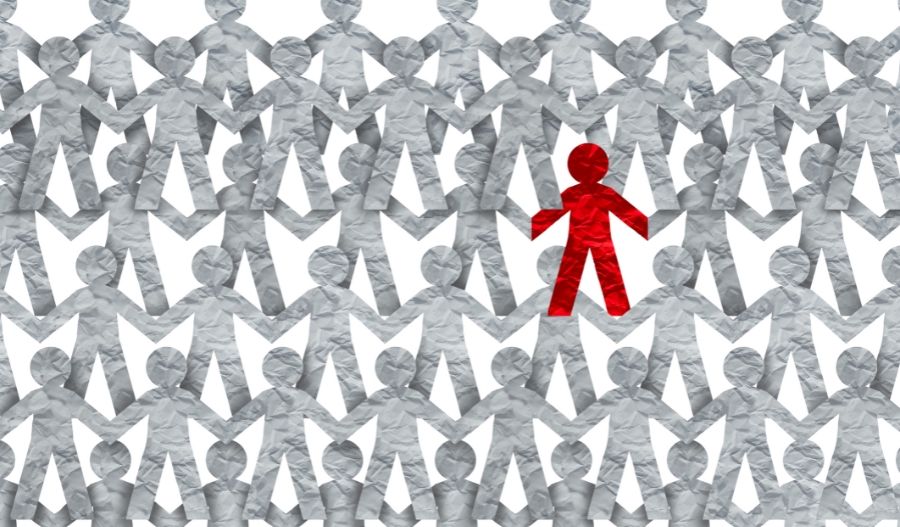The experiences and preservation of structural racism jeopardize the lives and liberties of various individuals and communities. Societal areas exploited by the legacies of colonialism and racism are vast, affecting the lives of asylum-seekers, refugees, migrants, and racialized minorities such as Sámi, Roma, Black, African, Asian, and Russian communities differently.
While there are countless examples of overt racism in Finland, structural racism occurs with invisibility as it is embedded within the systems of society. Critical analysis shows that racialized minorities are subject to encountering this form of racism through varied practices. Racism is also “visible” merely by positioning whiteness as the norm and standard.
Yet, structural racism is too often disregarded as an existing injustice in our society. To dismantle all forms of racism, we must vocally condemn structural racism as a violation of human rights deserving international legal protection.
International human rights norms urge Finland to promote racial justice:
- Finland has ratified the International Convention on the Elimination of All Forms of Racial Discrimination, under which the government has many obligations to dismantle racially discriminatory structures in the society. Freedom from discrimination is also enshrined in several UN treaties and the Universal Declaration of Human Rights.
- In the Durban Declaration and Programme of Action, adopted in the World Conference against Racism in 2001, states have made political commitments towards anti-racism and addressing the consequences of colonialism.
- Discrimination on the grounds of racial or ethnic origin is prohibited in the EU law. European Commission has adopted the EU anti-racism action plan 2020-2025, encouraging member states to step up action to address racism.
- In the Council of Europe, European Commission against Racism and Intolerance (ECRI) has been mandated to combat racism in the light of the European Convention on Human Rights, its additional protocols and related case-law.
Finland = One of the most racist countries in Europe
Research makes it unmissable that Finnish society has an issue with structural racism. The Being Black in the EU report revealed that Finland is one of the most racist countries in Europe. The findings disclose that 63 % of Finnish respondents were subject to racist harassment and 14 % reported experiencing racist violence in 5 years before the survey. Similarly, the report confirms high occurrences of ethnic profiling and discrimination. According to the Finnish Institute for Health and Welfare (THL), nearly 40 % of people with foreign background in Finland experienced discrimination within a year.
Employment discrimination and exclusion influence the livelihoods of racialized minorities by perpetuating inequality. Research indicates an apparent bias in the hiring process, which aims to benefit candidates with Finnish appearing names while failing to seriously consider applicants who appear outside of Finnish identity. In addition, reports show that employer attitudes remain a significant barrier to employment of the Roma people.
Racialized attitudes inform judgments concerning the types of careers a person is suitable to pursue. The role of migrants in the Finnish labor market is often portrayed narrowly as replenishing labor shortages in certain fields such as old-age care or cleaning services. Alternatively, employment policies actively aim to attract international “highly skilled” talent from abroad while ignoring the structural problems experienced by the highly educated migrants in the country.
Additionally, structural racism is circulated within education. In schools, racism operates through the perpetuation of stereotypes, particularly through educators and guidance counselors who steer students into specific career and education paths based on racist assumptions. BIPOC and second-generation Finnish students are stigmatized as several students are mandated to enroll in Finnish as second language courses, despite their first language being Finnish or fluently articulating in Finnish.
Consequently, employment and education inequality has a direct negative effect on the realization of other rights, opportunities, and economic status. This form of racially motivated othering not only sustains dominant ideas on Finnish identity being exclusive to whiteness but have adverse effects on student success, future, and relationship to Finnish society.
Anti-discrimination measures remain inadequate to build racially just Finland:
- Under the Finnish Non-Discrimination Act, no one may be discriminated against based on their origin, nationality, or language. Compliance with the Non-Discrimination Act is supervised by the Non-Discrimination Ombudsman, the National Non-Discrimination and Equality Tribunal, and the occupational safety and health authorities.
- Finland has adopted an action plan for combating racism and promoting good relations between population groups in 2021-2023, including eight objectives for different branches of government.
- Despite these steps, anti-racism work in Finland is chronically under-resourced and implementation of the law is found wanting.
Dismantling racism requires dismantling colonial legacies
Colonialism is understood as the authority of a region acquired by invasion. Finland’s relationship and involvement in colonialism are often disregarded as Finland is considered blameless due to a history of being victims of colonialism. Researcher Anna Rastas has referred to Finnish exceptionalism as the idea that Finland was not complicit in colonial practices and, therefore, excused from analyzing or dismantling colonial legacies such as racism.
Accounts of the Nordic’s participation and perpetuation of European colonialism have recently gained more recognition through indigenous activists and contemporary research. Researchers have revealed that Finns benefited from European colonialism and distributed colonial knowledge, imagery, and implemented colonial discourse into social norms. This makes visible the ties between colonialism, patterns of oppression and constructions of racialized identities.
Finnish history of missionary work resembles cultural colonialism. Since 1870, Finns participated in missionary work in the Owambo region of southern Africa (now Namibia) in addition to the colonialist endeavors of Sweden and Denmark as supporting agents. Finnish missionary work in Africa, as well as exposure to the representations and rhetoric of the colonial era, influenced the racialization and views toward African people which informs perspectives on race in contemporary society.
Finland’s history and relationship with the Sámi people reflect inequality, colonialism, and oppression. In the 18th-20th century, Finns were categorized as non-Europeans, therefore, inferior. To prove that Finnish belonged to whiteness and European standards, the Sámi were considered as “other” and inferior to the Finnish identity. Additionally, the Sámi people were displaced and forced to adhere to dominant Finnish standards and language through education. Racialization and injustice toward the Sámi people have had continuing effects in Finland, with inadequate recognition of this history and its impacts.
States must address the root causes of structural racism:
- According to human rights experts, historical legacies of colonialism and transatlantic slavery remain among the root causes of contemporary forms racism.
- States have increasingly been urged to provide remedies for these racial injustices both by compensating the historical wrongful acts and transforming contemporary structures of racism.
- Recently, the UN Special Rapporteur on Racism has also called on decolonizing the doctrines of international law that remain barriers to reparations.
Towards justice with anti-racist activism
Finland still has much work to do on dismantling racism. International human right bodies have given Finland a pile of recommendations, ranging from training judicial authorities and effectively investigating racist hate speech to preventing discrimination against Roma persons. Moreover, Finland has been urged to strengthen the Sámi people’s right to self-determination and to ratify the ILO Convention 169 on Indigenous and Tribal Peoples.
To ensure that racialized minorities’ rights are prioritized and treated with justice, anti-racist work is vital. The purpose of anti-racist activism is to achieve liberation, healing, and to resist racism and hierarchical structures that perpetuate inequity and oppression. It relies on an intersectional approach that addresses how multiple forms of inequality and identity interact in different contexts.
Many anti-racist organizations such as Fem-R, Anti-Racist Forum, AFARS, MoniHeli, Rasmus, Finnish Sámi Youth, and Fintiko Romano Forum already work hard to expose inequality and provoke a transformation in critical areas. However, anti-racist transformation is not only a responsibility of those belonging to racialized minorities. White people must actively unlearn from harmful practices, support minority-led groups in their work and demand for change.
Prejudice against one group affects all people. As the system of White supremacy harms everyone, disembodies, and divides us, it is critical to work collectively to change culture and revise policies. Through inclusive and collaborative anti-racist organizing that centers the experiences of BIPOC and Roma communities, we can work together to challenge and resist structural racism.
Structural racism needs a structural response. Time for action is now!
UN High Commissioner for Human Rights has urged states to build the change for racial justice on four pillars:
- Step up! States must stop denying and start dismantling racism by adopting comprehensive “whole-of-government” responses.
- Pursue justice! States must ensure accountability of law enforcement officials for human rights violations and build trust with all members of racialized communities.
- Listen up! States must hear people of African descent and act on their concerns at every level.
- Redress! States must confront past legacies of enslavement and colonialism, and to comprehensively repair the harms.
Authors: Nia Sullivan & Matti Pihlajamaa.
Nia is a former trainee for Amnesty Finland, fabulous anti-racist activist and master’s student studying social exclusion with a concentration in gender studies. Matti works in Amnesty Finland as an advisor on LGBTI rights and human rights education.
The views expressed in this blog are writers own and do not necessarily represent the organization’s official position.


